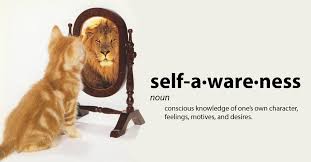Introduction.

Awareness is a fundamental aspect of personal development that often goes unnoticed. It serves as the foundation upon which all self-improvement efforts are built. Without awareness, it’s challenging to identify what needs to change, what goals to set, and how to navigate the journey of growth effectively. This article explores the power of awareness in your self-improvement journey, highlighting ten key aspects that can lead to meaningful and sustainable change.
1. Understanding Self-Awareness
Explanation: Self-awareness is the ability to recognize your thoughts, emotions, and behaviors and how they impact your life and those around you. It provides a clear picture of who you are.
Example: Keeping a daily journal to track your emotions can enhance self-awareness, allowing you to identify patterns in your feelings and reactions.
2. Recognizing Limiting Beliefs
Explanation: Awareness helps uncover limiting beliefs that can hinder personal growth. These are negative thoughts about yourself that you may not consciously recognize.
Example: If you believe you are not good at public speaking, this belief can prevent you from pursuing opportunities to improve. Challenging this belief can open new avenues for growth.
3. Identifying Emotional Triggers
Explanation: Being aware of what triggers specific emotions enables you to manage your responses effectively. This knowledge is crucial for emotional regulation.
Example: If stress triggers your impulse to procrastinate, recognizing this pattern allows you to implement strategies to cope with stress more constructively.
4. Setting Intentional Goals
Explanation: Awareness of your strengths, weaknesses, and desires aids in setting meaningful and intentional goals aligned with your values.
Example: Instead of setting a vague goal like “get fit,” being aware of your current health status can lead to a more specific goal like “exercise for 30 minutes three times a week.”
5. The Role of Mindfulness
Explanation: Mindfulness enhances self-awareness by encouraging you to focus on the present moment without judgment. It helps you become more attuned to your thoughts and feelings.
Example: Practicing mindfulness meditation for even 10 minutes a day can help you develop greater awareness of your emotional state and thought patterns.
6. Seeking Constructive Feedback
Explanation: Awareness of your strengths and areas for improvement can be significantly enhanced by seeking feedback from others. This external perspective can provide valuable insights.
Example: Asking a trusted colleague for feedback on your work performance can reveal blind spots you might not be aware of and inform your self-improvement efforts.
7. Celebrating Progress
Explanation: Awareness of your achievements, no matter how small, is essential for motivation. Recognizing progress boosts confidence and encourages continued efforts.
Example: Keeping a success journal where you record your accomplishments, even minor ones, can help you maintain perspective on your growth over time.
8. The Impact of Environment
Explanation: Your environment can influence your behaviors and mindset. Awareness of how your surroundings affect you is crucial for creating a positive space for self-improvement.
Example: If you notice that cluttered spaces make you feel anxious and distracted, being aware of this can motivate you to declutter your workspace.
9. Embracing Change and Adaptability
Explanation: Awareness of your comfort zone allows you to recognize when it's time to step outside of it for growth. Being adaptable is essential for overcoming challenges.
Example: If you feel comfortable in a routine that no longer serves you, awareness can push you to seek new experiences, such as trying a new hobby or taking on a new responsibility at work.
10. Continuous Reflection
Explanation: Ongoing self-reflection is vital for maintaining awareness throughout your self-improvement journey. It enables you to reassess your goals and progress regularly.
Example: Setting aside time each week to reflect on your experiences, feelings, and progress can help you stay aligned with your self-improvement objectives and adjust as necessary.
Conclusion.
The power of awareness in your self-improvement journey cannot be overstated. By cultivating self-awareness and understanding your thoughts, emotions, and behaviors, you can make informed choices that lead to meaningful growth. The journey of self-improvement is ongoing, and awareness acts as your compass, guiding you through the challenges and opportunities you encounter. Embrace the power of awareness, and watch as it transforms your approach to personal development.


You must be logged in to post a comment.